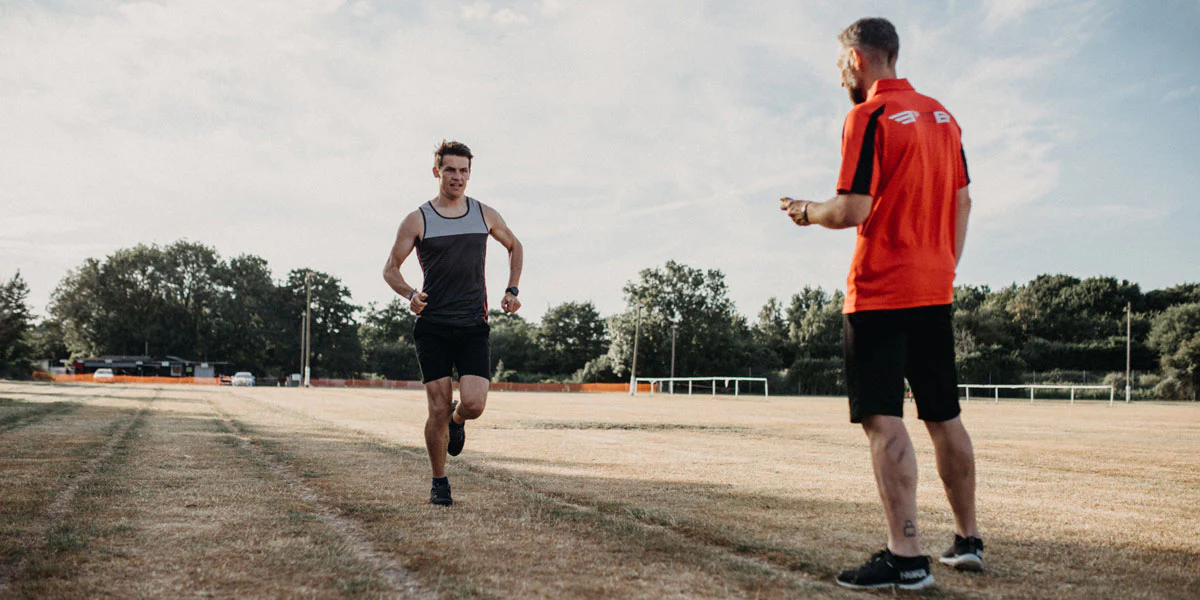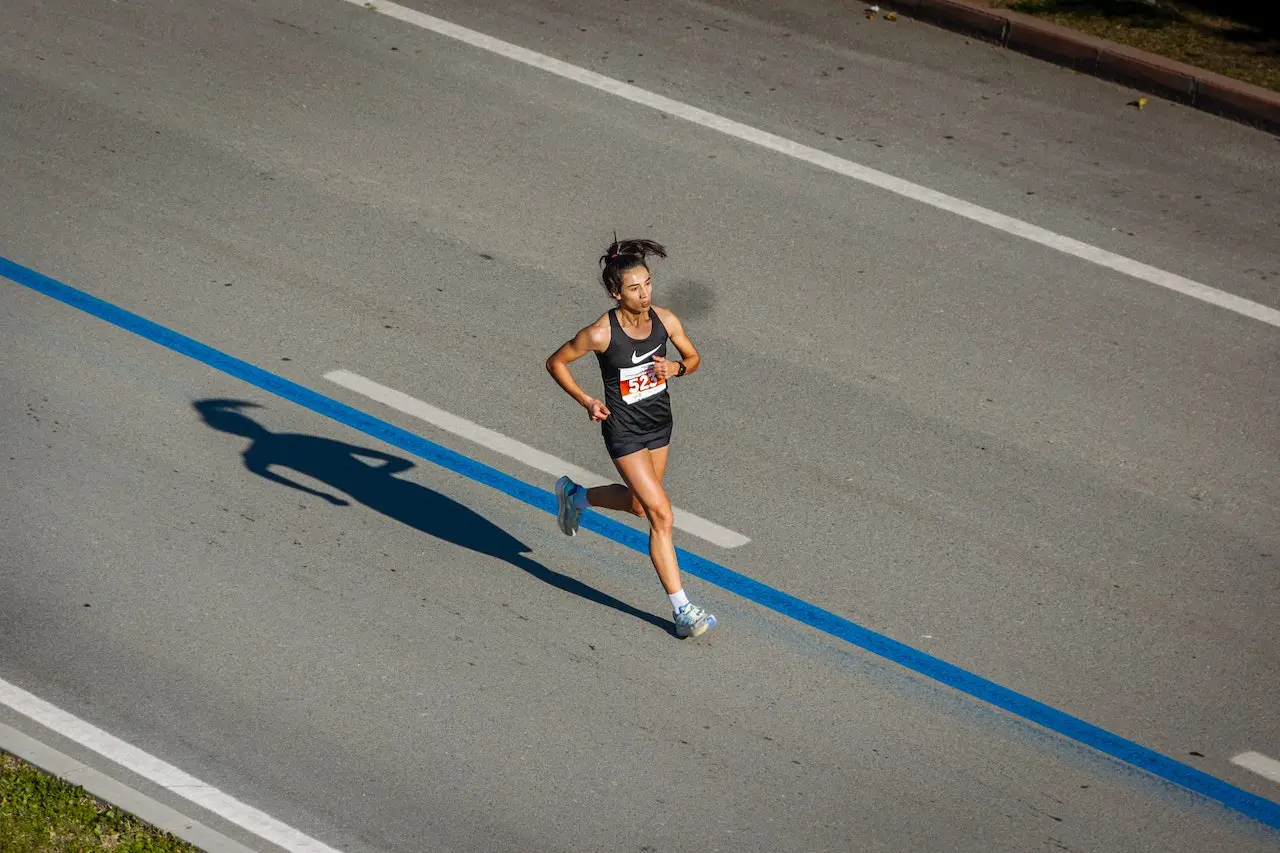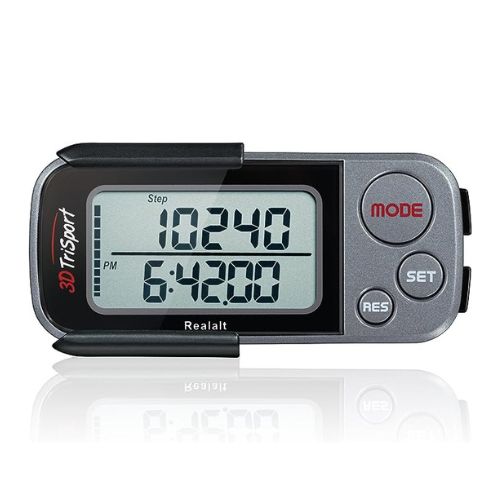How Many Steps Is a 5K: How to Count Your Steps Per Mile
When it comes to staying fit and healthy, walking and running are two of the most popular forms of exercise. One common question that people ask is “how many steps is a 5K?” Whether you’re a runner or a walker, it’s always good to know how many steps you’re taking during your 5K. This information can help you track your progress and set goals for your workouts.
How many miles is 5K steps? What is better – walking or running? In this article, we’ll explore the number of steps in a 5K and why it’s important for both runners and walkers to know. Let’s figure it out together!
The number of steps taken in a 5K run or walk varies depending on several factors, such as height, experience, chronic conditions, stride length, and pace. However, on average, a person takes approximately 4700 steps during a 5K run and 6600 during a 5K walk.
What Is the Number of Steps in a 5K? Walking vs Running
So, how many steps is a 5K? The number of steps during a 5K race can vary depending on several factors, including height, stride length, and running speed. However, on average, a person takes around 4,700 to 6,600 steps. This number can be higher or lower depending on whether you run or walk the race, and your individual speed or pace.
How many steps in a 5K walk? To better understand the number of steps you take while running or walking, we’ve compiled a table of average step counts for one mile and one kilometer.
| Activity | Steps per Mile | Steps per Kilometer |
|---|---|---|
| Walking | 2200 | 1500 |
| Running | 1300 | 1000 |

Walking vs. Running
As you can see from the table above, walking and running require different amounts of steps to cover the same distance. This is because running involves longer strides and a faster pace, which results in a lower number of steps per mile or kilometer. In general, running requires around 20% fewer steps per mile than walking.
While knowing the number of steps in the distance is helpful, it is important to also understand the importance of stride length. A variety of factors, such as leg length, flexibility, and running form, can impact stride length. A shorter stride length can be beneficial for runners and walkers who are prone to injury or who are just starting. A longer stride length can be helpful for more experienced runners who are looking to increase their speed. By experimenting with different stride lengths, you can find the most comfortable and efficient option.
Tracking the number of steps taken during a workout can be useful for runners and walkers looking to improve their performance. By knowing the number of steps in a particular distance, you can better understand your stride length and make adjustments as needed. While stride length can be impacted by various factors, experimenting with different lengths can help you become more efficient. So, the next time you go out for a run or walk, consider keeping track of your steps – it may help you reach your fitness goals faster.
How Many Steps Are There in a 5 km Race. 6 Factors that Influence Steps Count
Let’s explore the average number of steps in 5K and the factors influencing it.
The number of steps taken during a 5 km race can vary depending on age, experience, and stride length. On average, it takes around 4,500 to 6,500 steps to complete a 5 km race. However, this number can vary based on the individual runner’s pace and running style.
During a 5 km marathon, the average number of steps taken by a runner depends on their pace. For example, if a runner completes a 5 km race in 20 minutes, they would have taken around 170 steps per minute and 3,400 steps per whole distance. However, if a runner completes the same race in 30 minutes, they would have taken around 130 steps per minute or approximately 3,900 steps per whole distance.
The table below shows how many steps a 5K can be. The information was taken from men and women during a 5K race based on step and stride length.
Steps in 5k walking
| Step Length (men) | Step Length (women) | Stride Length (men) | Stride Length (women) | Steps in 5k (men) | Steps in 5k (women) | |
|---|---|---|---|---|---|---|
| Short | 2.2 | 2.0 | 4.4 | 4.0 | 7200 | 7920 |
| 2.25 | 2.1 | 4.5 | 4.2 | 7040 | 7542 | |
| 2.3 | 2.2 | 4.6 | 4.4 | 6886 | 7200 | |
| Medium | 2.35 | 2.3 | 4.7 | 4.6 | 6740 | 6866 |
| 2.4 | 2.35 | 4.8 | 4.7 | 6600 | 6740 | |
| 2.45 | 2.4 | 4.9 | 4.8 | 6465 | 6600 | |
| Long | 2.5 | 2.45 | 5.0 | 4.9 | 6336 | 6465 |
| 2.55 | 2.5 | 5.1 | 5.0 | 6211 | 6336 | |
| 2.6 | 2.55 | 5.2 | 5.1 | 6092 | 6211 | |
| 2.65 | 2.6 | 5.3 | 5.2 | 5977 | 6092 |
Steps in 5k running
| Step Length (men) | Step Length (women) | Stride Length (men) | Stride Length (women) | Steps in 5k (men) | Steps in 5k (women) | |
|---|---|---|---|---|---|---|
| Short | 2.9 | 2.7 | 5.8 | 5.4 | 5462 | 5866 |
| 3.0 | 2.8 | 6 | 5.6 | 5280 | 5657 | |
| 3.1 | 2.9 | 6.2 | 5.8 | 5109 | 5462 | |
| Medium | 3.2 | 3.0 | 6.4 | 6.0 | 4950 | 5280 |
| 3.3 | 3.1 | 6.6 | 6.2 | 4800 | 5109 | |
| 3.4 | 3.2 | 6.8 | 6.4 | 4658 | 4950 | |
| Long | 3.5 | 3.3 | 7.0 | 6.6 | 4525 | 4800 |
| 3.6 | 3.4 | 7.2 | 6.8 | 4400 | 4658 | |
| 3.7 | 3.5 | 7.4 | 7.0 | 4281 | 4525 | |
| 3.8 | 3.6 | 7.6 | 7.2 | 4168 | 4400 |
When it comes to running a 5K, the number of steps taken can vary greatly. Factors such as speed, cadence, gender, experience, route, and climate can all play a role in determining the number of steps taken.
1. Speed
The speed at which a person runs a 5K can greatly influence the number of steps they take. Typically, the faster a person runs, the longer their stride length will be, resulting in fewer steps taken overall. However, it’s important to note that increasing speed too much can lead to inefficient running form and decrease the number of steps taken.
2. Cadence
Cadence refers to the number of steps taken per minute while running. A higher cadence generally means a shorter stride length and more steps. However, a higher cadence can also lead to a more efficient running form and less impact on the body, resulting in a faster and more comfortable run.
3. Gender
Gender can affect the number of steps taken during a 5K. On average, men tend to have longer legs and take fewer steps than women. However, this is not always the case and can vary greatly depending on each individual’s body composition and running form.
4. Experience
Experience with running can influence the number of steps in a 5K. More experienced runners tend to have more efficient form and can therefore take fewer steps while maintaining the same speed as a less experienced runner.
5. Route
The route taken during a 5K can also impact the number of steps taken. A hilly or uneven route may require more steps to navigate, while a flatter and smoother route would result in fewer steps.
6. Climate
Lastly, climate can also affect the number of steps taken during a 5k. Running in hotter temperatures or high humidity can cause the body to work harder, resulting in a higher cadence and more steps taken overall.
Overall, there are many factors that can influence the number of steps taken during a 5K. By understanding these factors, runners can work to optimize their running form and technique to achieve their best performance possible.
Subscribe to Our Running Newsletter!
Get free running tips from renowned professional athletes and discounts from top-notch brands.
3 Ways to Track the Number of Steps You Take in a 5K
You may now be wondering, how can you accurately track your steps during the race? Let’s explore three ways to track the number of steps you take in a 5K.

1. Fitness Tracker
A fitness tracker is one of the most popular ways to track how many steps are in a 5K. These devices are becoming increasingly popular and available in various styles or price points. Most fitness trackers use an accelerometer to detect movement, which is then used to calculate the number of steps you take. Some fitness trackers also include GPS tracking, heart rate monitoring, and the ability to sync with your smartphone or computer.
2. Pedometer
Another option for tracking your steps during a 5K is to use a pedometer. Pedometers are small, wearable devices that are designed to count the number of steps you take. They work by measuring the movement of your hips, which is then used to calculate the number of steps. While pedometers are not as accurate as fitness trackers, they are generally less expensive and can still accurately estimate the number of steps you take during a 5K.
Our recommendation
3DTriSport Pedometer For Running
Accurate Step and Calorie Counter, Distance Miles/Km
Material:
Acrylonitrile Butadiene Styrene (ABS)
Compatible Devices:
No bluetooth or smartphone connect
Battery Life:
8760 Hours
Package Weight:
0.1 Kg
3. Smartphone
Finally, you can also use your smartphone to track how many steps a 5K is. Most smartphones include a built-in accelerometer, which can be used to detect movement and calculate the number of steps you take. Many apps are also available for both iOS and Android, specifically designed to track your steps. These apps can provide real-time progress feedback and sync with other fitness apps and devices.
How Far Is 5K Steps When It Depends on the Runner?
Let’s discuss how many steps is a 5k and how far it is for runners based on their stride length and pace.
Before we dive into the table, let’s first understand how many steps are in a mile and kilometer. On average, there are approximately 2000 steps in a mile and 1300 steps in a kilometer. However, this number varies depending on stride length. For instance, if you have a longer stride length, you might take fewer steps to cover a mile or kilometer.

Time Taken to Run 5k Steps
How many miles is 5k steps? In the table below, we calculated how far 5k steps are for runners who take different steps per mile or kilometer. We have also included the time taken for a man and a woman to run 5k steps, assuming an average pace of 10 minutes per mile or 6 minutes per kilometer
| Number of Steps per Minute | Time Taken for 5k |
|---|---|
| 160 | 31 Min 15 Sec |
| 170 | 29 Min 25 Sec |
| 180 | 27 Min 48 Sec |
| 190 | 26 Min 22 Sec |
As you can see, the distance covered in 5K steps varies depending on the number of steps a runner takes in a mile or kilometer. For instance, if a runner takes 180 steps per minute, they will cover a distance of 1.38 miles or 2.22 kilometers in 5k steps. On the other hand, if a runner takes 260 steps per minute, they will only cover a distance of 0.96 miles or 1.55 kilometers in 5k steps.
Distance Calculator: How Many Miles is 5k Steps?
With our calculator, you can easily find out what distance in miles you will cover for 5000 steps. The calculator is based on a formula that takes into account your height and average stride length.
Distance Calculator
Result:
Walking 5K vs. Running 5K
How many steps is in a 5K when it comes to walking and running? Running and walking are great ways to get moving, but they require different intensity levels. Running is considered a high-impact activity that requires more effort and energy, while walking is a low-impact activity that is less strenuous. Running a 5K burns more calories and improves cardiovascular health faster than walking a 5K. Furthermore, walking 5 km offers a low-risk, low-impact way to achieve the same health benefits as running
| Activity Type | Number of Steps for 5K Men | Number of Steps for 5K Women |
|---|---|---|
| Running | 4300-4500 | 4500-4700 |
| 2 week | 6500 – 6500 | 6700 – 6800 |
As shown in the table above, running a 5K requires fewer steps than walking a 5K. This is because running involves a greater stride length and a faster pace.
Benefits of Walking a 5K
Walking 5 km is a great way to get active and improve your health. It is a low-impact activity that is easy on the joints and muscles, making it suitable for people of all ages and fitness levels. Walking a 5K can help improve cardiovascular health, reduce the risk of chronic diseases, and strengthen bones and muscles. Additionally, walking is a great stress reliever and can improve mental health.
Benefits of Running a 5K
On the other hand, running a 5K is a high-impact activity that requires more effort and energy than walking, but it offers tremendous benefits for the body and mind. Running 5 km burns more calories than walking and can help improve cardiovascular health faster. Additionally, it can help reduce the risk of chronic diseases, strengthen bones and muscles, and improve mental health.
Frequently Asked Questions About How Many Steps Is a 5K
How Many Steps a Day Should You Take?
According to the American Heart Association, you should aim for at least 10,000 steps daily. However, this number may vary depending on your age, sex, and physical condition. So, it’s always best to consult your doctor or a fitness expert to determine a sustainable daily step goal that suits you.
How Many Calories Should I Burn Walking 5 KM?
Walking is a great way to burn calories, and 5 km is a good distance to aim for. On average, a person can burn around 300-400 calories by walking 5 km at a moderate pace. However, the number of calories burned will depend on your weight and walking speed.
Final Words on How to Count Steps for 5K
In conclusion, the number of steps required to complete a 5K when running or walking depends on several factors, including your stride length and pace. However, regardless of how many steps you take, walking and running are both excellent forms of exercise that offer numerous health benefits. So, if you want to stay fit and healthy, consider incorporating walking or running into your daily routine.
Remember, the number of steps is not as important as the total distance covered and the overall physical activity. So let’s keep moving!
How many steps a day do you usually walk or run? Please share your experience in the comments below.
Also read:
- Running 10 Miles A Day
- Benefits of Running With a Weighted Vest
- Running 4 Miles A Day
- Running in the Evening
- Running With A Weighted Vest
- Does Running Tone Your Legs
- Best Running Headbands
- Neutral vs Stability Running Shoes
References:
- Who is going to walk? A review of the factors influencing walking recovery after spinal cord injury // PMC: https://www.ncbi.nlm.nih.gov/pmc/articles/PMC3952432/
- Influence of Stride Frequency and Length on Running Mechanics // PMC: https://www.ncbi.nlm.nih.gov/pmc/articles/PMC4000471/
- Relationship between objective measures of physical activity and weather: a longitudinal study // PMC: https://www.ncbi.nlm.nih.gov/pmc/articles/PMC1557535/
- Step Counting: A Review of Measurement Considerations and Health-Related Applications // PMC: https://www.ncbi.nlm.nih.gov/pmc/articles/PMC5488109/
- Effect of Brisk Walking on Health-Related Physical Fitness Balance and Life Satisfaction Among the Elderly: A Systematic Review // PMC: https://www.ncbi.nlm.nih.gov/pmc/articles/PMC8841590/
- Leisure-time running reduces all-cause and cardiovascular mortality risk // PubMed: https://pubmed.ncbi.nlm.nih.gov/25082581/
If you have any questions or suggestions, you can contact us via email – [email protected]







I use a pedometer, it’s easier for me. It shows clearly, the indicators were compared with a friend’s fitness tracker during a run.